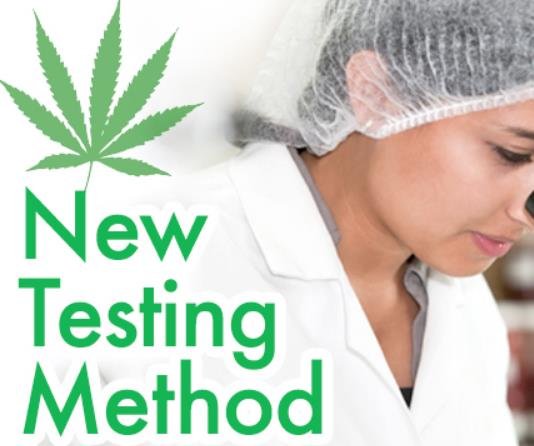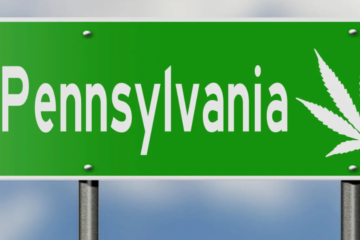Nearly three in four cannabis consumers in legal states believe licensed marijuana products are clean and safe to use. But a chunk of them still cast a wary eye on the unregulated market.
A new survey from cannabis telehealth firm NuggMD shows that 73% of users say they have either “high” or “moderate” trust that weed sold by licensed retailers is free of contaminants. That includes things like pesticides, mold, heavy metals, and anything else that could make a product more dangerous than advertised.
The poll, shared exclusively with Marijuana Moment, highlights a growing consumer confidence in regulated dispensaries. It also raises new questions about how effective state systems really are at keeping potentially harmful products off shelves.
Consumers Show Growing Faith in Legal Cannabis Shops
More than two-thirds of respondents said they trust what they buy from licensed shops.
That’s not nothing. Trust in the cannabis supply chain matters—and this new data suggests most people think legal markets are doing something right. But the picture’s not totally rosy.
- 18% of participants said they have “low trust” in legal cannabis when it comes to avoiding contaminants
- 9% said they have no trust at all in the products they’re buying
That’s more than a quarter of the people polled who have at least some concern about what’s in their weed, even when it’s bought from a licensed business.
“While trust is generally strong,” said a NuggMD spokesperson, “these results also point to a meaningful segment of consumers who remain skeptical.”

Illicit Weed Still Carries a Stigma of Risk
Last year, NuggMD ran a similar poll. That one flipped the script—asking about unregulated cannabis instead of licensed stuff. The results? Brutal.
82% of respondents said they had “low” or “no” trust at all in marijuana from the illicit market. It’s clear that many still see the black market as a gamble. No surprise, considering several widely reported cases of contaminated cannabis making headlines in recent years.
This tracks with warnings from industry analysts and public health officials who have raised alarms about inconsistent testing and unsafe products on the illegal side of the fence. Some states, like California and Oregon, have even launched public campaigns to warn users away from unlicensed sellers.
It’s not just talk either. There have been raids, arrests, and product seizures tied to cannabis that tested positive for things like dangerous pesticides and mold spores.
A Look At The Numbers: Who Trusts What
The NuggMD survey drew from a national pool of cannabis users in U.S. states where recreational marijuana is legal. Here’s a snapshot of what they found:
| Trust Level In Legal Cannabis | Percentage of Respondents |
|---|---|
| High Trust | 39% |
| Moderate Trust | 34% |
| Low Trust | 18% |
| No Trust | 9% |
So, yes—most users feel pretty confident about what they’re buying legally. But the margins tell a more complicated story. It’s not universal. And some users are still suspicious.
What’s Behind the Distrust?
The cannabis industry, even in regulated markets, isn’t immune to problems. In 2023 alone, at least five states reported product recalls tied to contamination issues. That includes recalls for mold, yeast, and pesticide residues above acceptable limits.
Plus, trust often comes down to visibility. Consumers rarely get to see lab results or details about how products are tested before they land on shelves. That lack of transparency can chip away at confidence.
One sentence here, just to break things up.
Some say the testing rules are too loose. Others say they’re too strict, or inconsistently enforced. Either way, it leaves space for doubt.
Legal Markets Still Face a Messaging Problem
There’s a bit of irony here. While legal dispensaries are trusted more than their illicit counterparts, many users still aren’t 100% sold on the safety of their weed. That’s partly because not every state operates the same.
Testing rules vary. Licensing standards differ. Some states have more money for enforcement than others. Consumers notice.
States like Colorado and Massachusetts are considered more rigorous in their quality control. Meanwhile, others have struggled with oversight.
There’s also the issue of marketing. Legal retailers often assume consumers already know they’re safer. But trust isn’t automatic. It has to be earned—and explained.
A bullet list fits naturally here:
- Make lab testing data more accessible
- Require clearer labels about what was tested (and when)
- Push for consistent national standards
These steps could help shore up trust further. Because at the end of the day, no one wants to guess what’s in their joint.
Industry Eyes Opportunity, But Also Risk
Trust isn’t just a health issue. It’s a business one. Consumers who feel confident in legal products are more likely to stick with licensed shops.
That’s key as states fight to pull users out of the black market. Industry groups say boosting faith in product safety can also help justify pricing and taxes that often make legal weed more expensive.
But if states or businesses cut corners, it won’t take much to send trust levels tumbling. A single contaminated product or headline can undo a lot of good PR.
So while the numbers are encouraging, they’re also a warning. Trust is rising. But it’s fragile.



